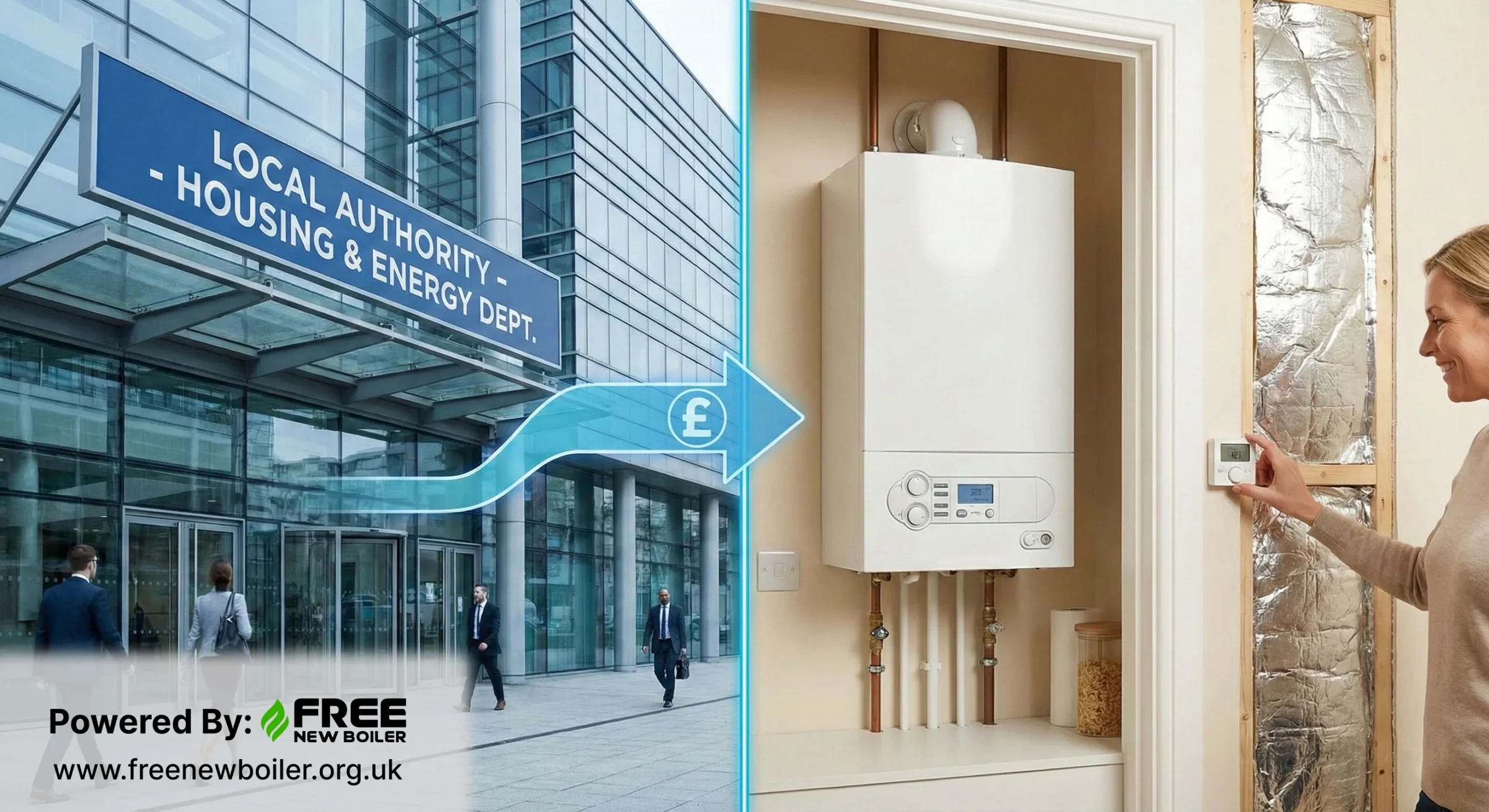The Science Behind Energy-Efficient Boilers
If you’re a homeowner looking to save on heating costs and reduce carbon emissions, energy-efficient boilers are a powerful tool in your hands. But have you ever wondered about the science behind their effectiveness?In this article, we deconstruct the scientific basis behind energy-efficient boilers, examine how the latest boiler grants beat older boilers and discuss how they can be crucial to households’ savings and environmental goals.
What Makes a Boiler Energy-Efficient?
A more energy-efficient boiler uses less fuel to create the equivalent quantity of heat. This is accomplished through technological advances in materials, design and heat recovery systems.
Contrary to conventional boilers with a G rating that only convert 60-70 percent of the fuel to usable energy, modern condensing boilers achieve efficiency ratings of over 90%. This means higher efficiency and less waste, which results in lower utility costs.
The research lies in optimizing heat exchange and condensation, which we’ll examine below.
The Role of Condensing Boiler Technology
One of the main technological advancements in increasing the efficiency of boilers is condensing technology.
How Condensing Works
When a boiler is traditional, most of the heat generated is wasted through the combustion of flue gases. But, condensing boilers are specifically designed to make use of the heat.
How it is done:
- The gases produced by combustion are pushed through the principal heat exchanger, which heats the water.
- Instead of being released, gases are then passed through a second heating exchanger.
- When the gas cools, the water vapour forms a condensate within the heat exchanger and releases latent heat that can be reabsorbed back into the system.
Recovering the stored heat is why condensing boilers are much more effective.
Advanced Heating Systems and Fuel Optimization
Apart from condensing, different scientific aspects are also a part of the scientific basis of the energy efficiency of boilers:
Modulating Burners
Modern boilers are equipped with variable burners that can modify the size of the flame depending on the heating demand. Instead of continuously turning the burners on or off (like older models), they operate much more effectively, decreasing energy consumption and enhancing fuel efficiency.
Smart Thermostat Integration
In conjunction with smart thermostats and zoning control, boilers can deliver warmth precisely where it is needed and at the right time. This results in a reduction in fuel usage and helps to save energy.
Sealed Combustion Chambers
Sealed chambers increase combustion efficiency by isolating the flame from the surrounding air. They draw in just the amount of air required to ensure the best air-to-fuel ratio.
Boiler Grant Boilers: Efficiency Meets Affordability
High-efficiency boilers had been considered a luxury item; boiler grants under the ECO4 scheme allow them to be used by households with low incomes all over the UK.
The boiler grants boilers aren’t only cost-free for eligible homeowners. They also include:
- Professionally installed
- In compliance with the strictest efficiency rules
- Guaranteed by warranty
The Energy Company Obligation (ECO4) program encourages the acceptance of green heating equipment and energy efficiency strategies by fully funding upgrades.
Through ECO4, many households are currently benefiting from the energy-efficient replacement of boilers, which significantly reduces the cost of heating.
How Efficient Boilers Help Reduce Carbon Emissions
Energy-efficient boilers aren’t only a way to make money and play a crucial role in fighting climate change.
Lower Fuel Consumption = Lower CO2
A boiler that operates at 92 92% efficiency uses significantly less gas than one operating at 65 percent. Lower gas consumption leads to lower greenhouse emissions of gas.
Compliance With UK Emission Goals
The UK Government’s goal of achieving net zero carbon emissions by 2050 is a significant national effort. By embracing high-efficiency heating equipment, homeowners are not only helping themselves but also contributing to this important goal.
Comparing Traditional vs. Energy-Efficient Boilers
| Feature | Traditional Boilers | Energy-Efficient Condensing Boilers |
| Efficiency | 60–70% | 90–95% |
| Flue Gas Waste | High | Low |
| Fuel Consumption | High | Optimized |
| Annual Savings | £0–£100 | Up to £600 |
| ECO4 Grant Eligible | ❌ | ✅ |
Clearly, the difference is not just scientific — it’s financial and environmental too.
Who Qualifies for a Boiler Grant?
The UK government, via ECO4, can provide no-cost boiler replacement to:
- Families with lower income
- People who qualify for benefits
- Property with poor EPC scores (typically D or below)
If your boiler is at least 8 years old and you satisfy the requirements, you could receive a free new energy-efficient boiler.
Real Example: A Case of Science and Savings
Think about the situation of James, an elderly pensioner of 72 years who hails from Birmingham. His boiler kept malfunctioning, unable to keep his home warm. Through the grant-giving agency, James had a condensing boiler set up as part of the ECO4 program.
Within the next few weeks:
- He stayed in a warmer house.
- His bill for gas was reduced by nearly 35%.
- He was more certain of the system’s stability.
It was science at work that improved the living conditions and decreased costs.
Conclusion: Small Device, Big Impact
The technology behind energy-efficient boilers will reveal the amount of technology and creativity incorporated into something that we overlook. From condensing units to moderating burners and intelligent integration, modern boilers are the most precise tools for efficiency and environmental sustainability.
Because of government-funded programs, such as the ECO4 program, you can bear the burden of contemporary heating by yourself; with proper guidance, it is possible to have a .eco-friendly and comforness.



